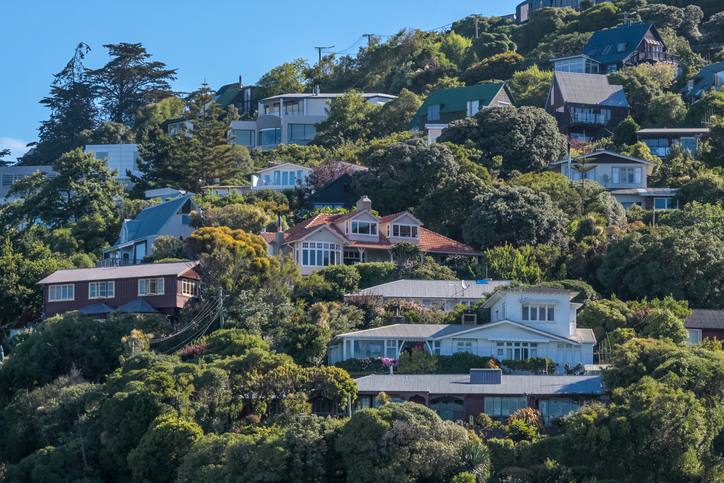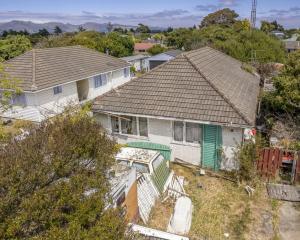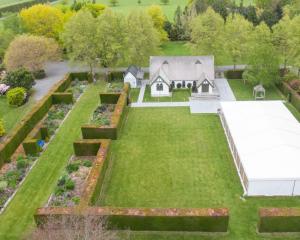
Otago and the West Coast in the South Island lagged behind the rest of country, registering 12-month price growth of 14% and 17% respectively.
However, different factors appear to be behind what on the surface appears to be subdued house-buying activity.
With a median value of $269,000, the West Coast is New Zealand’s most affordable housing market, and boasts towns and cities with some of lowest house prices in the country.
A buyer looking at houses in the region’s main centres would generally need a deposit of around $50,000 – a quarter of what a buyer in Auckland would typically need to stump up.
Deedee Daly, of Greg Daly Real Estate in Greymouth, says her town has had an extraordinary boom even if the numbers are not as big as in other regions.
OneRoof figures for Grey District, of which Greymouth is the main town, show a $260,000 median value as of May this year compared to $215,000 for the same time last year – a difference of $45,000 in 12 months.
“I’ve never seen anything like it before,” Daly says.
“Most properties are selling in if not days then weeks and with multi offers. That’s a very big change for the coast.
“Probably a couple of years ago I could easily have a property on for six months and now I’d be lucky to have it on for six days, with multi offers.”
Investors have pulled back a bit since the Government’s changes to the tax rules around investment purchases in March but now they are coming back, Daly says, and before the changes investors were very active.
“Before that announcement they were coming in and buying three or four at a time, mostly sight unseen from the North Island.”
Sections have been selling, too, with middle aged people selling their homes while the market is good who are then looking at building their dream homes.
Any home with a rating valuation of $260,000 is selling for $100,000 more and sections can be bought for $85,000 to $200,000, Daly says.
People are moving into the area as well and even before Covid people were coming in for the cheaper housing.
They told Daly they wanted out of Nelson, for example, because it was too “hustly bustly” and pointed to the steep house prices in that town, or said they wanted out of Christchurch because it was getting too big and had too many traffic lights.
Greymouth is getting some pretty nice houses now, she says. An executive-style property in town sold recently for $850,000 which is a big sale price for the coast.
Compared to the rest of the country, Otago has slowed, with its median value up just 14% to $623,000.
The biggest drag the region’s overall numbers was Queenstown, which bore the brunt of the economic fallout from Covid and the ban on international visitors. The region, which was in negative territory for much of last year, is now on the rise again but annual growth was still just 9%.
Before Covid, the region’s biggest centre, Dunedin, was the rock star of the New Zealand housing market, enjoying annual house price growth that hit double digits while other major metros eked by on growth of between 1% and 6%.
Post-Covid, Dunedin’s median property value jumped 24%, to $597,000 - a $117,000 difference on a year ago – but while 24% is a good result several other major metros have seen higher growth rates in the last 12 months.
Sales numbers in the city have dropped a little since the investor announcement by the Government, says Joe Nidd, owner of Nidd Realty.
“We’re seeing investors moving away from some of the older stock and more marginal rental property and focussing more on new opportunities like new builds because of the incentives there, and some of the zoning changes in Dunedin are providing fresh opportunities.”
But while the investor market has slowed slightly, the overall year has been very strong, Nidd says.
“It’s been a huge year from a price growth perspective. I think we’ve now struck parity with some other larger centres.
“For example, when you compare us to Christchurch there are months where we were ahead. In years gone by there’s always been quite a gap between Dunedin and Christchurch so to see Dunedin overtake Christchurch some months would suggest we’re no longer the little affordable centre at the bottom of the country.”
A big part of that is people, from the North Island to Australia, reassessing their lives post-Covid and relocating to Dunedin to either work remotely or for lifestyle reasons.
There has also been an influx of businesses moving to Dunedin, particularly in relation to the hospital rebuild project.
“Support businesses are already starting to set up in anticipation of their contracts with the hospital and we’re seeing people who had done well in the Christchurch rebuild relocating to Dunedin in anticipation of the huge investment that’s going on down here.
“There are a lot of small factors that have combined which have increased demand and when you pair that with the fact not a lot of new land has been released in the city outside of Mosgiel the inevitable outcome is prices will increase when you’ve got a limited supply and a growing population base.”













